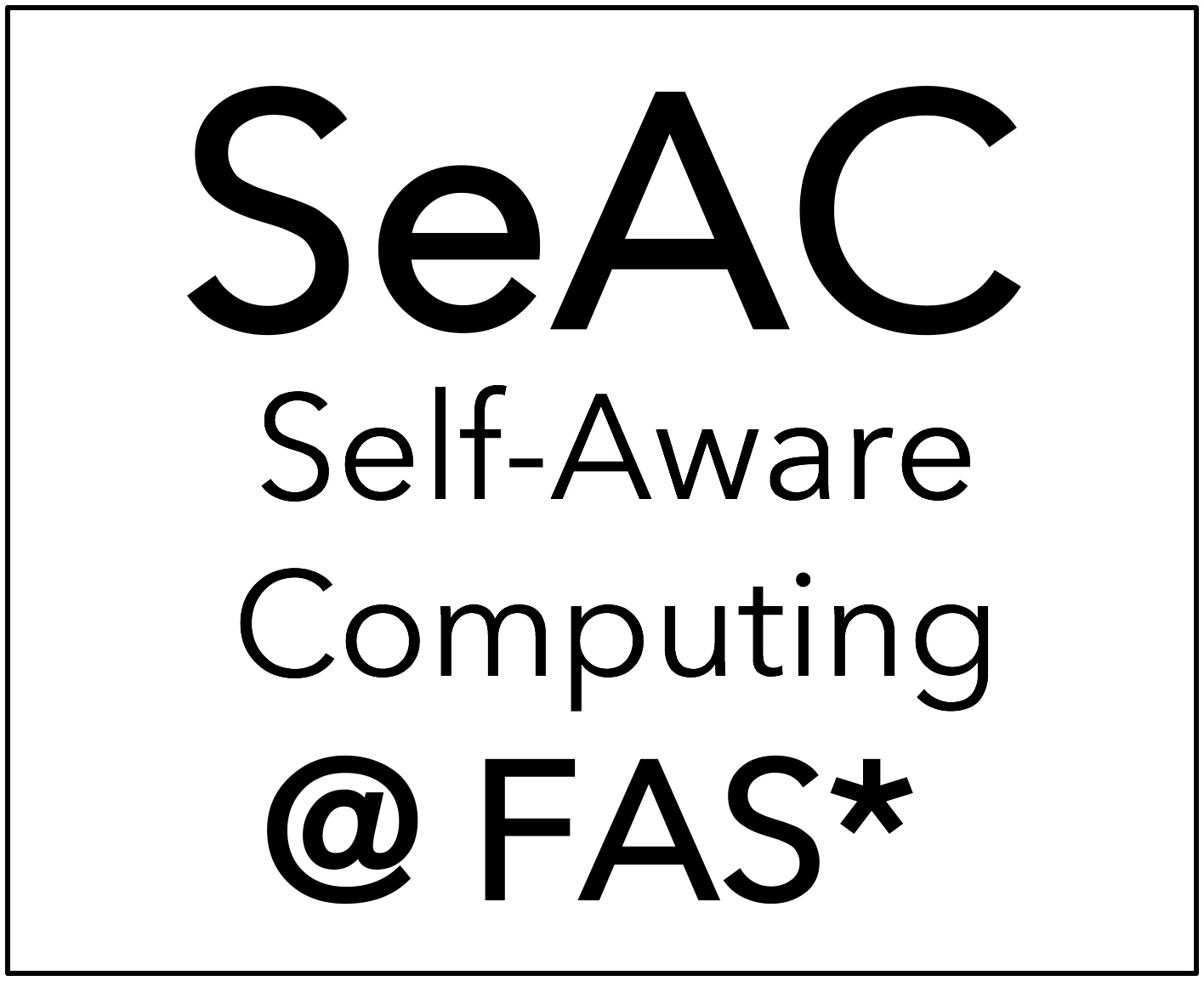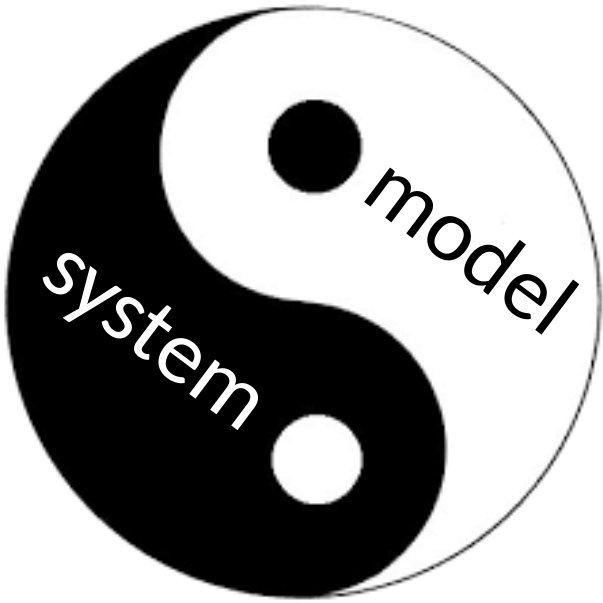Call for Papers
Self-aware computing systems are understood in a broad sense seeking to integrate the different ways in which this term is used in the interdisciplinary research landscape.
More specifically, self-aware computing systems are understood as having two main properties. They learn models, capturing knowledge about themselves and their environment (such as their structure, design, state, possible actions, and runtime behavior) on an ongoing basis; and reason using the models (to predict, analyze, consider, or plan), which enables them to act based on their knowledge and reasoning (for example, to explore, explain, report, suggest, self-adapt, or impact their environment) and do so in accordance with high-level goals, which can change.
In order to most effectively use such models at runtime, self-aware computing systems need increasingly powerful ways of observing their operational environment and their own performance and behavior and then building and refining their own models accordingly. An inherent principle of self-aware computing systems is having diverse feedback loops, which build a causal connection between the computing system and a reflective layer. The computing system is continuously observed and, based on this, the system is able to update and modify its models to reason about its goals, context, operational environment and its own resources, decisions and actions.
To effectively and efficiently realize these feedback loops, models and especially modifiable and updatable models@runtime are essential. The models@run.time paradigm proposes to use runtime models as abstractions of the computing system for the purpose of more efficient reasoning upon both its runtime observations and learned knowledge. Hence, models@run.time is especially looking for more innovative approaches to the causal connection between the system and the runtime model, with particular focus on a transaction concept for this causal connection for such issues as timing, roll-back ability and data-consistency.
The goal of this joint workshop is to provide a bridging podium for researchers working in the area of self-awareness, self-modelling, autonomous and organic computing, as well as self-adaptive and self-organizing systems with a focus on runtime representations that can be used by the system to reason about its goals, context, operational environment and its own resources, decisions and actions.
Topics of Interest
We are particularly interested in work covering the following non-exhaustive
list of topics:
- fundamental science and theory of self-aware computing systems
- languages and formalisms for runtime representations
- approaches realizing the causal connection between the computing system and its reflective layer as well as a general discourse on the characteristics of runtime representations and causal connections
- levels and aspects of self-aware computing systems
- architectures for individual and collective systems
- interdisciplinary approaches, as for example the mutual influence (or coercion) of socio-technical systems
- How runtime models can address basic principles of areas such as game theory.
- Distributed models@run.time, i.e., having multiple, interacting systems, each having its own runtime model and in general, issues of models at runtime in large scale systems with incomplete, partial models
- Impacts of uncertainty
- Approaches to real-time model-building, refinement
- Relevant lessons learned from bio-inspired, socially-inspired, unconventional systems
- For those papers focusing on executable models at runtime, we encourage the investigation of how the feedback from the systems are reflected in the executable models (so that they have causal (bi-)connections with the systems)
- Methods and algorithms for model learning (self-modeling) and reasoning
- Self-adaptation in individual and collective systems
- Synthesis and verification metrics and benchmarks
- Transition strategies for increasing self-awareness in existing systems
- Open challenges and future research directions
- Applications and case studies involving runtime representations: cloud computing, cyber-physical systems, data centers, dependable computing, industrial internet / industry 4.0, internet of things, mobile computing, service-oriented systems, smart buildings, smart city, smart grid / energy management, smart factory, traffic management, autonomous robotics, and space applications.
Submission
The workshop participants will be selected based on their experience and ideas
related to this maturing field. You are invited to apply for attendance by
sending:
- a full paper (6 pages) on original research, lessons learned from realizing
an approach or experiences on transferring a research prototype into practice,
- a position paper (4 pages) covering a well-argued vision or position,
- a demo paper (2 pages) covering a research prototype to be presented at the workshop or
- an abstract of already published work to be presented at the workshop
All papers must conform to the double-column IEEE formatting guidelines. At
least three PC members will review each submission. The authors will be
notified about acceptance before the ICAC 2018 early registration deadline.
Abstracts of already published work will, of course, not be published again.
All workshop papers will be submitted for inclusion to IEEE Xplore.
You can submit your papers via EasyChair here.
Organizers
- Sebastian Götz (main contact MRT) (web), Technische Universität Dresden, Germany
- Nikolas Herbst (main contact SeAC) (web), Universität Würzburg, Germany
- Nelly Bencomo (web), Aston Universiy, UK
- Kirstie L. Bellman (web), Topcy House Consulting, US
- Peter Lewis, (web), Aston University, UK
- Javier Camara Moreno, (web), Carnegie Mellon University, Pittsburgh, US
Program Committee
- Niklas Karlsson, Oath
- Lukas Esterle, Aston University, UK
- Marco Autili, Università dell'Aquila, Italy
- Lionel Seinturier, University of Lille, France
- Ta’id Holmes, Deutsche Telekom AG, Germany
- Antonio Filieri, Imperial College London, UK
- Christopher Landauer, Topcy House Consulting, US
- Mahdi Derakhshanmanesh, MHP Management- und IT-Beratung GmbH, Germany
- Matthias Tichy, Ulm University, Germany
- Thomas Vogel, Humboldt University Berlin, Germany
- Betty Cheng, Michigan State University, US
- Samuel Kounev, University of Wuerzburg, Germany
- Holger Giese, Hasso Plattner Institute at the University of Potsdam, Germany
|







